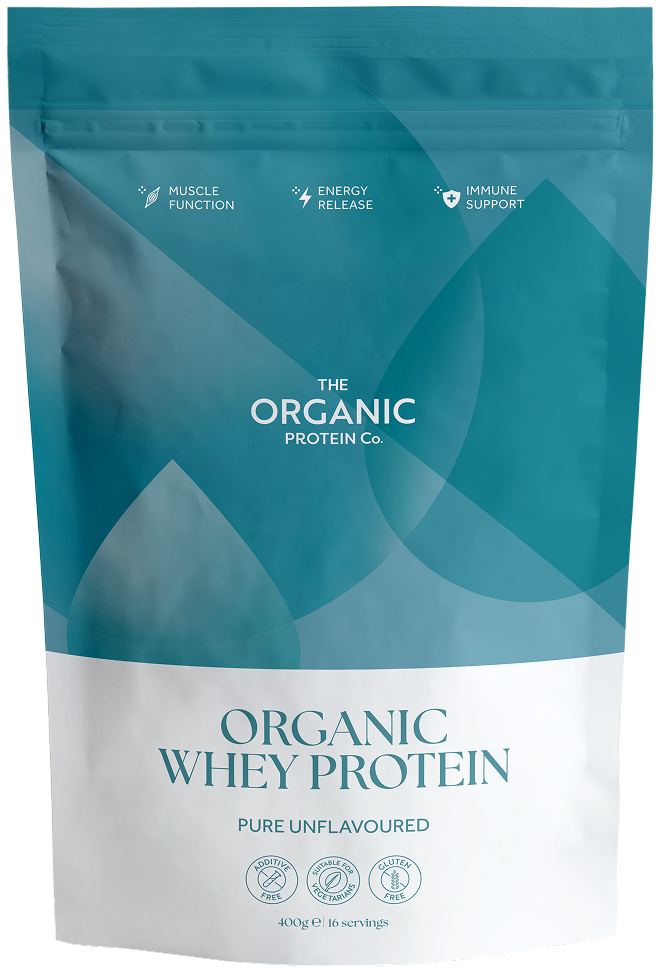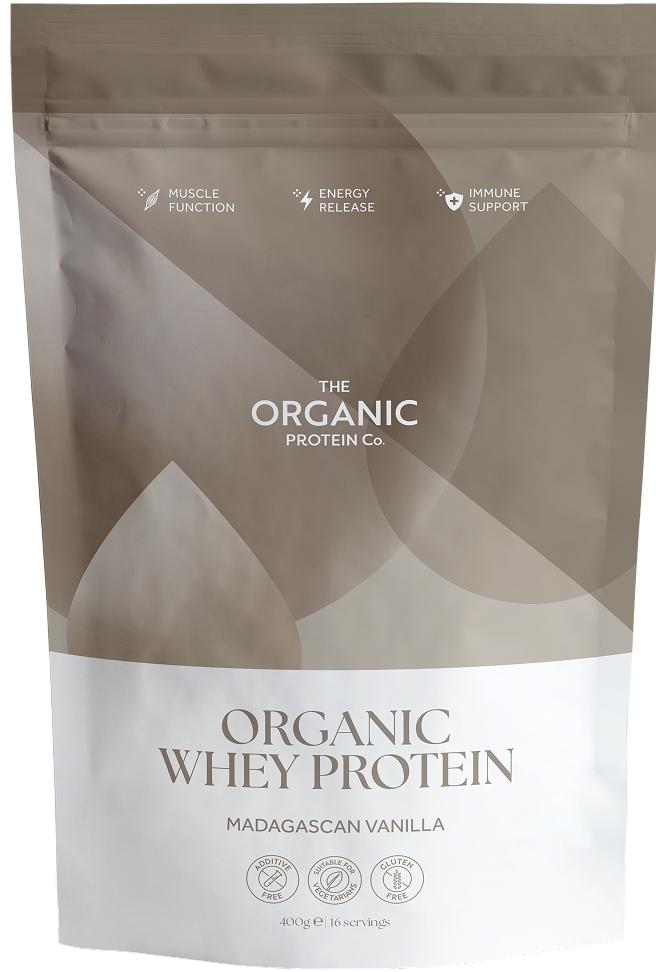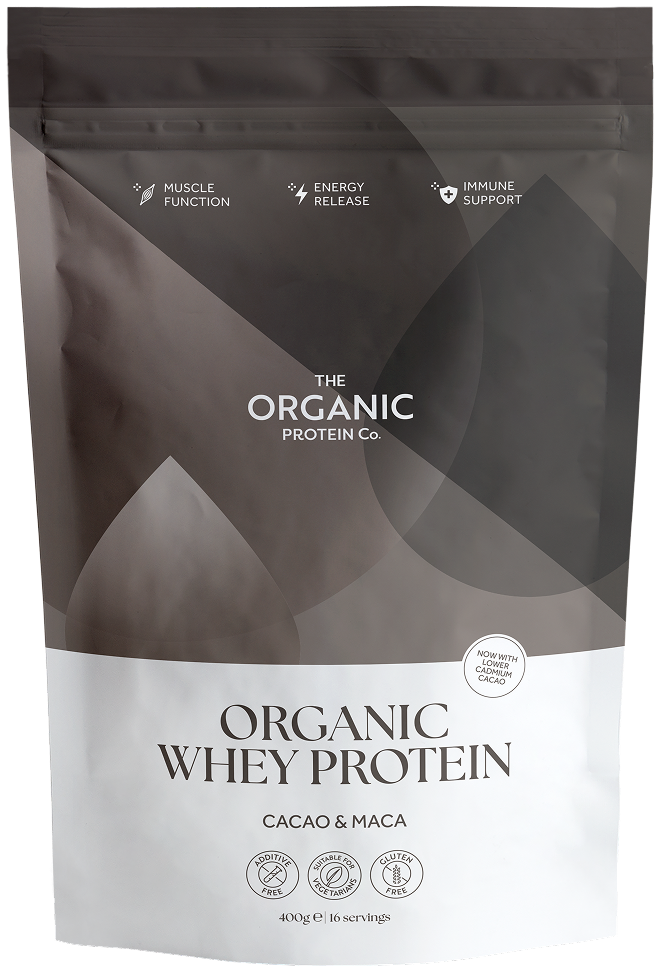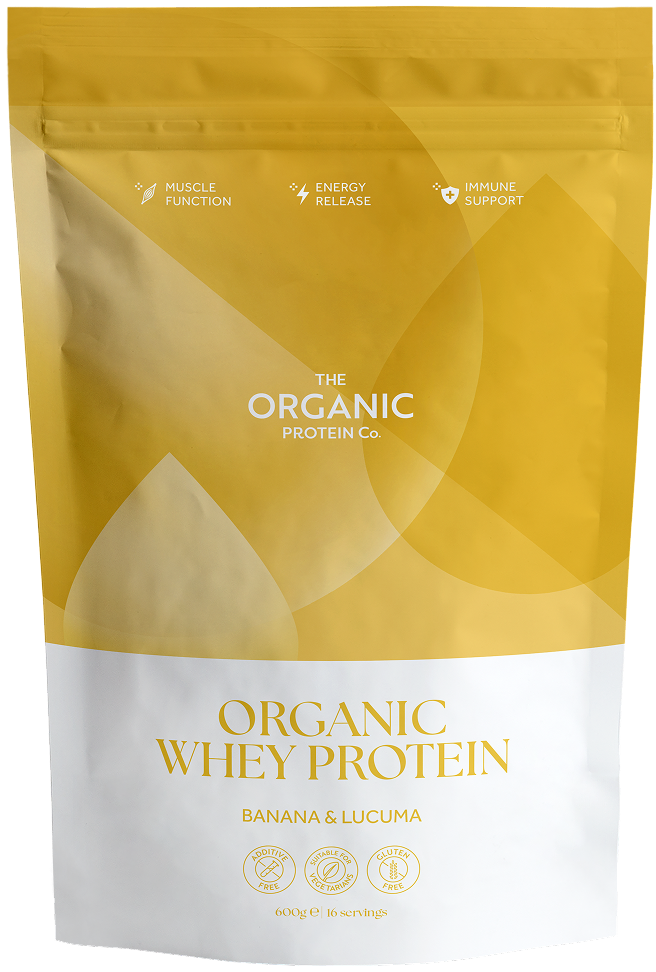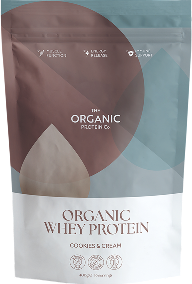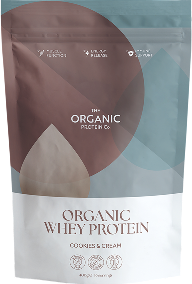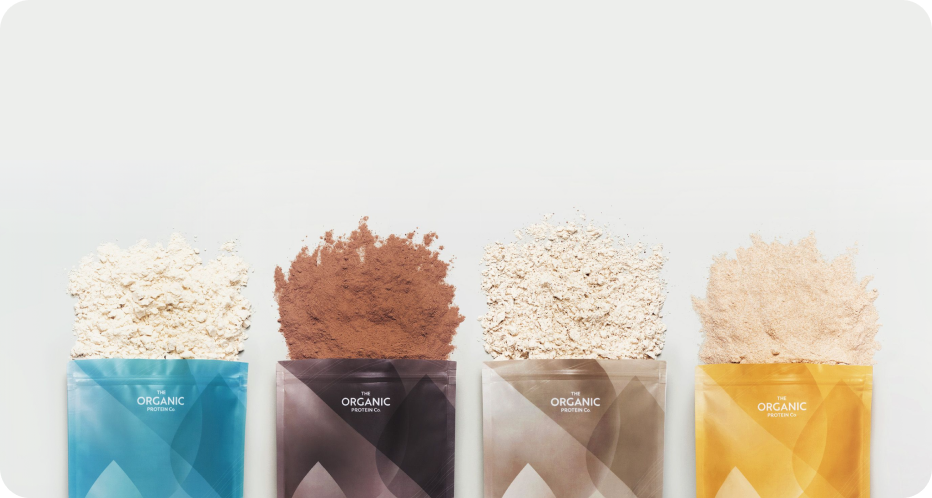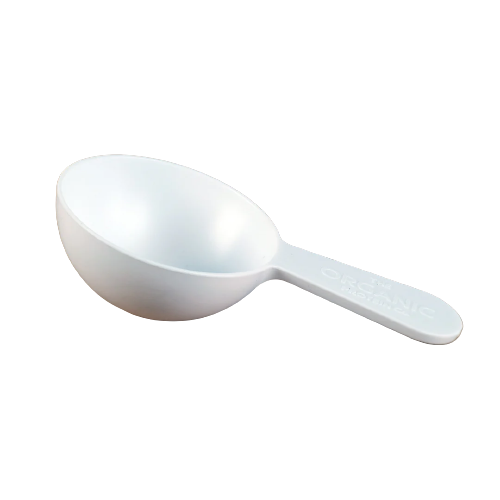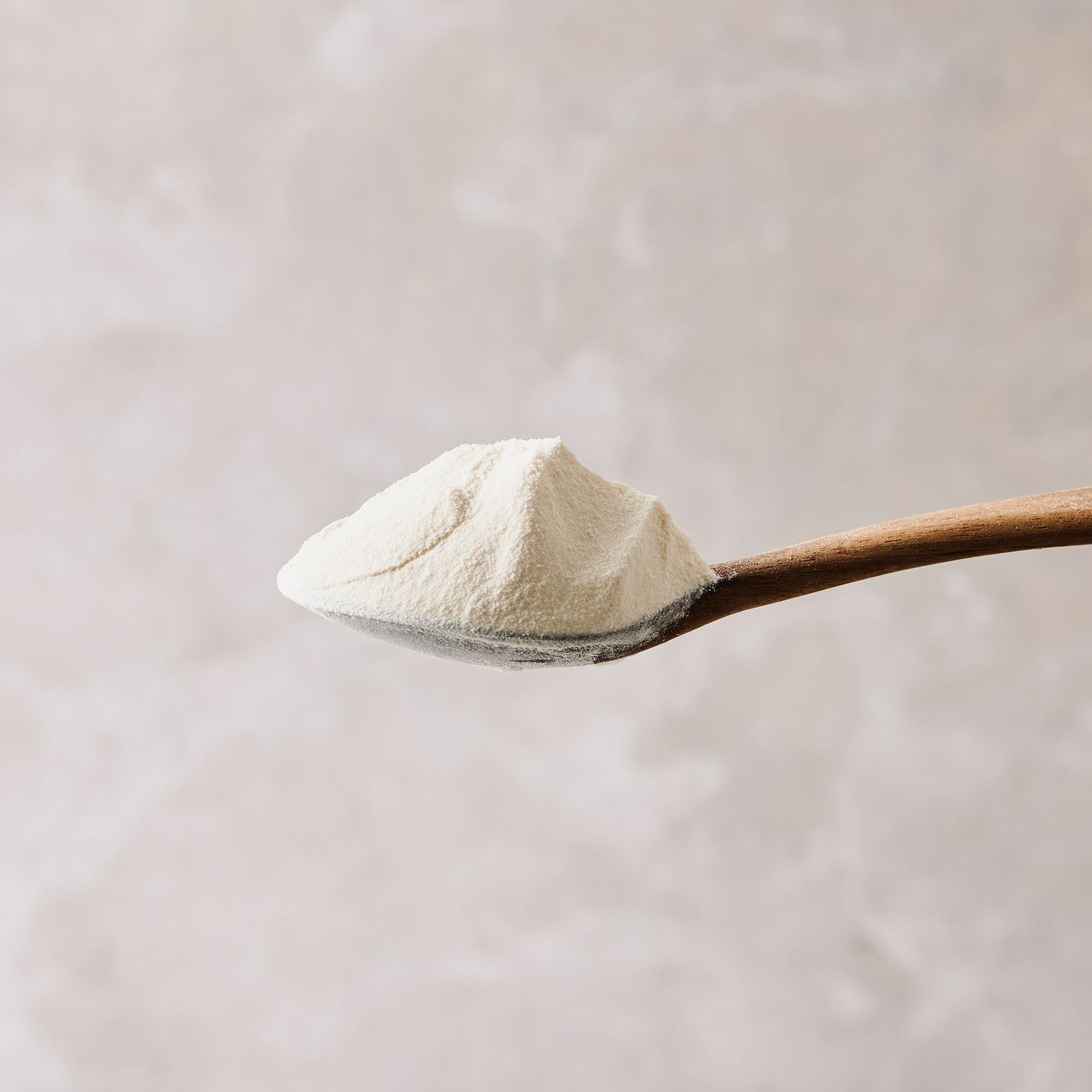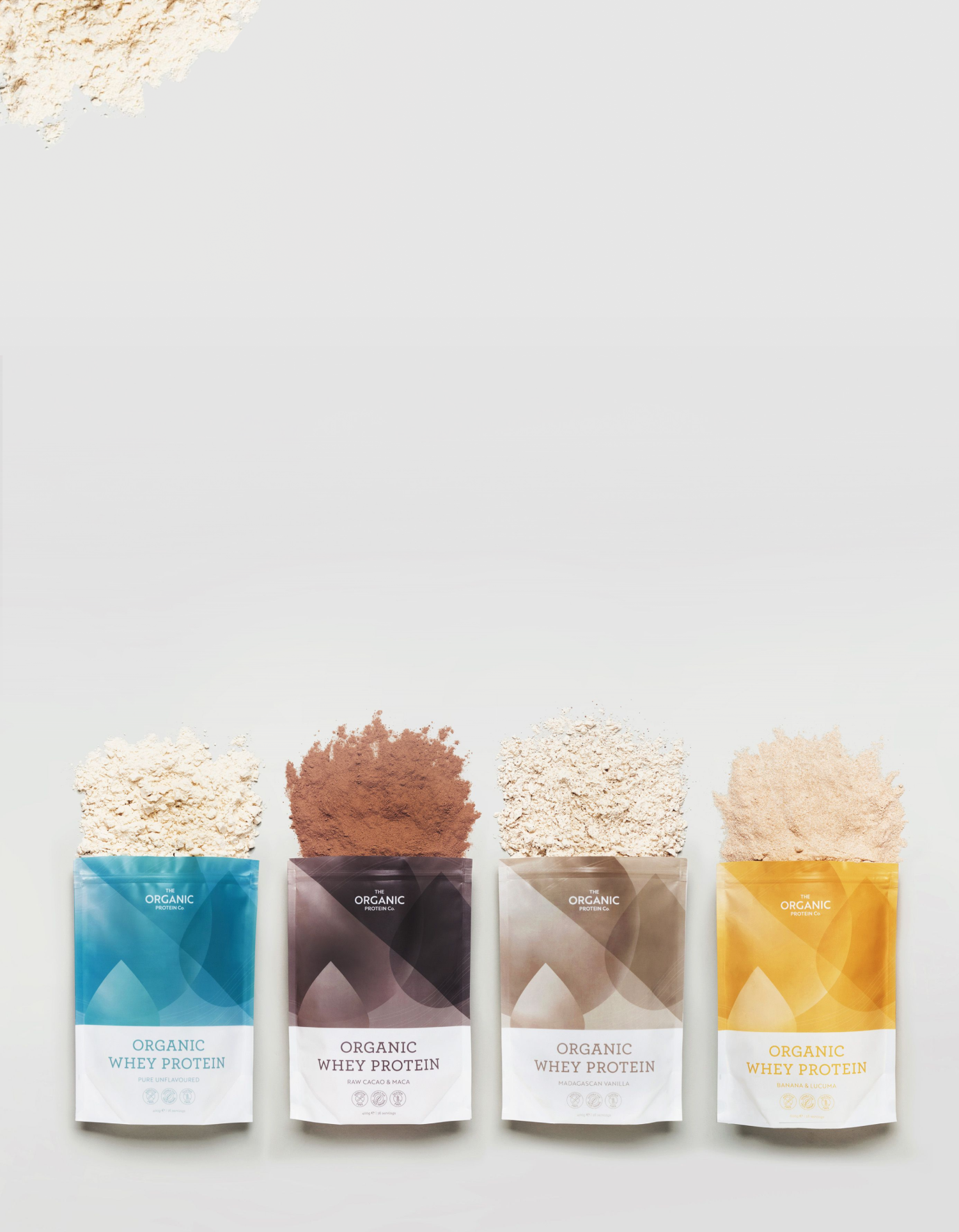For those who put their health first, concerns about harmful contaminants like BPA and melamine in protein powders can be alarming. BPA can leach from packaging into products, while melamine has been used in the past by bad actors trying to fake protein content levels.
The good news? Clean, transparent options exist - including our organic whey protein. In this guide, we’ll explore the risks of BPA and melamine in protein powder and the wider food system, and how to choose a safe, high-quality product you can trust.
The lowdown on BPA: what you need to know
You might already recognise the term BPA. Also known by its full name, bisphenol A, it’s an industrial chemical used in the production of plastics and resins. Found in food containers, packaging, and even the linings of cans, BPA is often under scrutiny for its health risks in humans.
A 2018 study by the Clean Label Project rang alarm bells when it found BPA contamination in commonly used protein powders. Testing 134 different powders, they found that 55% of them contained detectable levels of the chemical compound – including both whey protein and plant-based protein powders.
How does BPA end up in protein powders?
- Leaching from plastic containers: BPA can transfer to protein powders during storage or packaging.
- Manufacturing processes: Certain production methods may introduce BPA into products.
What are the health impacts of BPA?

The lowdown on melamine: what you need to know
Melamine is another type of chemical compound primarily used in manufacturing plastics and resins.
How does melamine end up in protein powders?
While it has no place in food products, melamine has occasionally been misused in the food industry, including protein powders, to artificially boost the protein content, leading products to fetch a higher price.
How does this work? Melamine contains high levels of nitrogen, which can mimic protein content during standard tests. In food and supplement manufacturing, unethical producers have been known to add melamine to create the illusion of higher protein levels – such as the melamine scandal in China in 2008.
What are the health impacts of melamine?
- Kidney damage: Melamine ingestion can lead to kidney stones, kidney failure, and other urinary tract problems. (5)
- Toxicity: Long-term exposure can cause chronic health issues, such as bladder cancer, particularly for those consuming contaminated products regularly. (5)
A red flag for quality control
Unlike BPA, which can unintentionally leach into products, melamine contamination is deliberate adulteration. It shows the importance of choosing reputable protein powder brands that choose to conduct rigorous quality testing to ensure safety and purity.

How much BPA and melamine is considered safe?
Ideally, our consumption of compounds like BPA and melamine should be as low as possible. However, contaminants like BPA or heavy metals have become part of our modern lives, so regulatory bodies have set limits to ensure consumer safety.
For BPA, the European Food Safety Authority (EFSA) sets a tolerable daily intake (TDI) of 0.2 nanograms (ng) per kilogram of body weight. (6) For melamine, the World Health Organisation (WHO) states a tolerable daily intake of 0.2 milligrams (mg) per kilogram of body weight. (7)
While these thresholds minimise risks, consistent exposure, even at low levels, can pose health concerns. So, it’s still vital to choose your protein powder supplement wisely.
How to choose high-quality, contaminant-free protein powders
Here’s how to ensure the protein powder you select meets the highest safety and quality standards, so you can enjoy its benefits with peace of mind:
1. Look for BPA-free packaging
Check the label or product description for a BPA-free claim. For example, we use HDPE plastic pouches for our organic whey protein powders, which are free from the presence of BPA.
2. Brands that prioritise third-party testing
Trustworthy brands will have their protein powders tested by independent third-party laboratories to ensure they’re free from contaminants like BPA, melamine, and heavy metals. Look for test certificates or results made available on the brand’s website. You can find our BPA test results here (none was detected).

3. Demand ingredient transparency
Avoid powders with vague or overly complex ingredient lists. Clean, high-quality products typically use minimal, recognisable ingredients and clearly state their protein and ingredient sources, whether it’s whey, plant-based, or collagen protein.
4. Look for key certifications
Key certifications indicate a higher quality product. For example, organic certification guarantees that no synthetic pesticides or GMOs have been used.
5. Research the brand’s practices
Reputable companies are transparent about their sourcing, farming practices, and production methods. A commitment to ethical sourcing can signal higher product quality.
Our commitment to transparency and clean nutrition
We make protein powders that meet the highest standards of safety, quality, and transparency – without compromise:
- Free-from BPA: We’ve had our protein powders third-party tested for BPA contamination as well as for the presence of heavy metals. These tests found no evidence of BPA and the lowest heavy metal levels found in the industry.
- No shady practices: We never artificially increase the protein content of our powders with melamine or participate in other shady practices – and we never will. It goes completely against our values at The Organic Protein Co.
- Ethical, trusted suppliers: We only work with high-quality, trusted suppliers across our supply chain. You’ll only ever see organic whey protein powder and organic, whole food ingredients in our protein powders. Absolutely no hidden ingredients.

The key to safer, higher-quality protein
When it comes to your health, knowing what’s in your protein powder is non-negotiable. Contaminants like BPA and melamine are reminders to choose trusted brands that put your safety first and prioritise transparency.
By selecting protein powders free from harmful chemicals and artificial additives, you can enjoy the benefits of clean nutrition without compromise.
